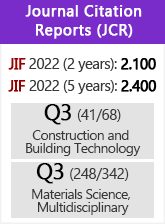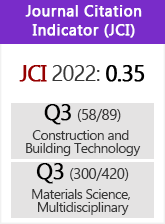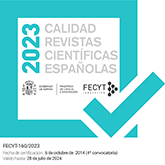Evaluation of the Pavement Quality Indicator (PQI) for the on-site density measurement of asphalt emulsion mixes
DOI:
https://doi.org/10.3989/mc.2013.03311Keywords:
on-site density, cold asphalt emulsion mix, warm asphalt mix, pavement quality indicatorAbstract
The Pavement Quality Indicator (PQI) is a non-nuclear gauge used for the on-site density measurement of asphalt pavements without the need to extract core samples. Previous studies of hot asphalt mixes found that PQI density readings were very similar to laboratory density measurements of pavement cores. This paper describes the first stage of a research project whose objective is to analyze PQI density measurements of mixes manufactured with an asphalt emulsion binder. The PQI density variability for such mixes was verified and compared with the results obtained with other on-site methods for measuring pavement density.
Downloads
References
(1) Huges, C.: “NCHRP Synthesis of Highway Practice 152: Compaction of Asphalt Pavement”. TRB, National Research Council. Washington, D.C. (1989).
(2) Prowell, B.; Dudley, M.: “Evaluation of measurement techniques for asphalt pavement density and permeability”. Transportation Research Record, vol. 1789. Paper No 02-3907 (2002), pp. 36-45.
(3) Williams, S.: “Non-nuclear methods for HMA density measurements”. Mack-Blackwell Transportation Center: Research and Special Programs Administration. No 2075 (2008), final report.
(4) Trans Tech Systems: Pavement Quiality Indicator. Model 301. Operator`s Handbook.
(5) Romero, P.: “Evaluation of non-nuclear gauges to measure density of hot-mix asphalt pavements”. Pool Fund Study. Departament of Civil and Environmental Engineering. The University of Utah (2002).
(6) Hausman, J. J.;Buttler, W. G.: “Analylis of Trans Tech Model 300. Pavement Quality Indicator: Laboratory and field studies for determining asphalt pavement density”. Transportation Research Record, vol.1813. Paper No 02-4055 (2002), pp. 191-200.
(7) Smith, B.; Diefenderfer, B.: “Comparison of nuclear and non nuclear pavement density testing devices”, Transportation Research Board. Annual Meeting (2008).
(8) Apeagyei, A.; Diefenderfer, B.; Clark, T.: “Density measurement methods for acceptance of bituminous mixtures: a survey of practice”, Transportation Research Board. Annual Meeting (2010).
(9) Practicó, F.; Moro, A.: "In-lab and on-site measurements of hot mix asphalt density: convergence and divergence hypotheses", Constr. Build. Mater., vol.25 (2011), pp. 1065-1071. DOI: 10.1016/j.conbuildmat.2010.06.071. http://dx.doi.org/10.1016/j.conbuildmat.2010.06.071
(10) Sebesta, S.; Zeig, M.; Scullion, T.: “Evaluation of non-nuclear density gauges for HMAC” Report FHWA/TX-04/0-4577-1. Texas Transportation Institute, Texas. A-M University System, College Station (2003).
(11) Sargand, S.; Kim, S.; Farrington, S.: “A working review of available non-nuclear equipment for determining in-place density of asphalt”, Final Report for State Job 147960. Ohio Research Institute for Transportation and the Enviroment, Columbus (2005).
(12) Rao, C.; Von Quintus, H.; Schmitt, R.: “Calibration of non-nuclear density gauge data for accurate in-place density prediction”, Transportation Research Board. Annual Meeting (2007).
(13) Research Project Nº GGI-1029/IDI0. Utilización de mezclas bituminosas templadas con emulsión en firmes de carreteras. Laboratorio de Ingeniería de la Construcción. Universidad de Granada, Agencia de Obra Pública de la Junta de Andalucía, General de Estudios y Proyectos, S.L. Spain (2010). www.aopandalucia.es/principal.asp?alias=inv_bituminosas&zona=innovacion&t=0 Accessed (14/11/2011).
Downloads
Published
How to Cite
Issue
Section
License
Copyright (c) 2013 Consejo Superior de Investigaciones Científicas (CSIC)

This work is licensed under a Creative Commons Attribution 4.0 International License.
© CSIC. Manuscripts published in both the printed and online versions of this Journal are the property of Consejo Superior de Investigaciones Científicas, and quoting this source is a requirement for any partial or full reproduction.All contents of this electronic edition, except where otherwise noted, are distributed under a “Creative Commons Attribution 4.0 International” (CC BY 4.0) License. You may read here the basic information and the legal text of the license. The indication of the CC BY 4.0 License must be expressly stated in this way when necessary.
Self-archiving in repositories, personal webpages or similar, of any version other than the published by the Editor, is not allowed.


















